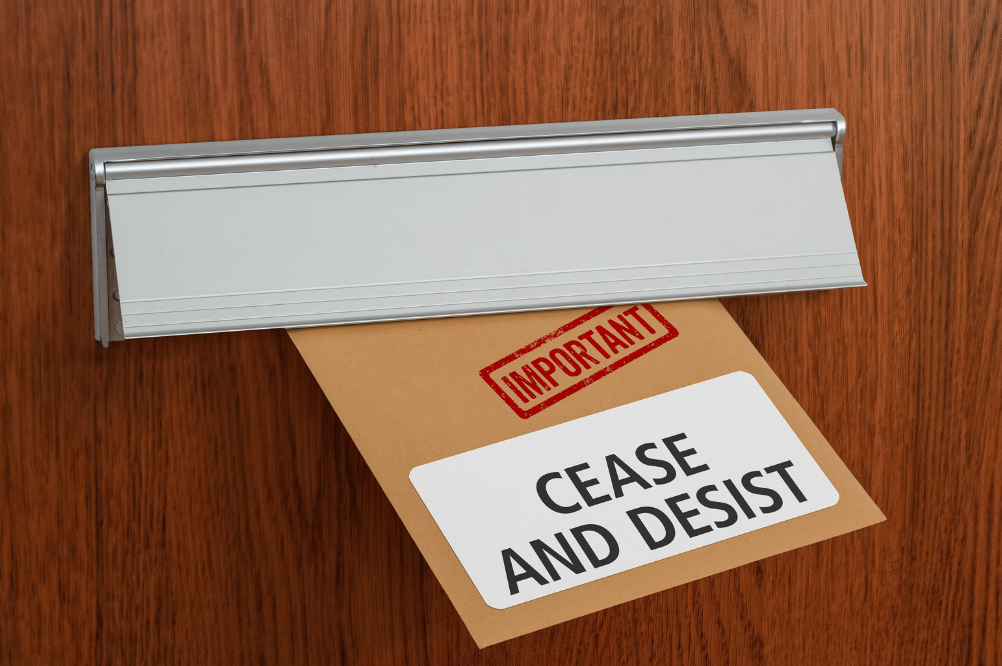Cease and Desist: What You Need to Know

A cease and desist letter is a powerful tool in the legal world, used to formally request that an individual or entity stop an alleged illegal activity. Often the first step in resolving disputes, these letters serve as a warning before escalating to litigation. Understanding the role, purpose, and implications of cease and desist letters is crucial for protecting your rights or addressing potential violations effectively.
What Is a Cease and Desist Letter?
- A cease and desist letter is a formal notice sent to an individual or entity demanding they stop engaging in certain actions or behaviors that are unlawful or harmful.
- It acts as a preliminary legal step, providing the recipient an opportunity to address the issue without resorting to litigation.
- Common uses include addressing intellectual property theft, harassment, defamation, or breach of contract.
- Learn more about cease and desist letters from the Legal Information Institute.
When Should You Use a Cease and Desist Letter?
- Intellectual Property Infringement: Protect your copyrighted works, trademarks, or patents.
- Defamation and Slander: Stop the spread of false and damaging information about you or your business.
- Harassment or Stalking: Demand cessation of threatening or invasive behaviors.
- Breach of Contract: Enforce contract terms and address violations.
Components of an Effective Cease and Desist Letter
- Clear Identification of Parties: Include the names and contact details of the sender and recipient.
- Detailed Allegations: Clearly outline the actions or behaviors causing harm, supported by evidence.
- Legal Basis for the Demand: Cite relevant laws or contractual obligations that have been violated.
- Specific Demands: Clearly state what you want the recipient to do or stop doing.
- Timeframe for Action: Provide a reasonable deadline for compliance.
- Warning of Consequences: Specify that legal action will follow if the issue is not resolved.
Legal Standing of Cease and Desist Letters
- A cease and desist letter itself is not legally binding, but it serves as a formal warning.
- If ignored, the sender may initiate legal action, where the letter becomes evidence of the sender’s attempt to resolve the issue amicably.
How to Respond to a Cease and Desist Letter
- Evaluate the Claims: Understand the allegations and assess their validity.
- Seek Legal Advice: Consult an attorney to guide your response and protect your rights.
- Comply, Negotiate, or Dispute: Take corrective action if the claims are valid, negotiate a resolution, or formally dispute the allegations.
- Maintain Documentation: Keep records of all communications and actions related to the matter.
Risks of Ignoring a Cease and Desist Letter
- Ignoring a legitimate cease and desist letter can lead to lawsuits, financial penalties, or court orders.
- It can also damage your reputation, especially in intellectual property or defamation cases.
- To understand legal consequences, visit NOLO.
State-Specific Considerations for Cease and Desist Letters
- Some states have specific legal frameworks for addressing issues like harassment, defamation, or intellectual property disputes.
- Research your state’s laws to ensure the letter complies with local regulations and is enforceable.
Examples of Cease and Desist Cases
- Cease and desist letters are commonly used to stop copyright infringement on platforms like YouTube, ensuring content creators’ rights are protected.
- Businesses frequently use these letters to prevent competitors from using similar branding or trademarks.
- For intellectual property enforcement strategies, refer to the United States Copyright Office.
Advantages of Cease and Desist Letters
- Provides a non-confrontational way to resolve disputes before escalating to court.
- Saves time and money compared to filing a lawsuit.
- Demonstrates professionalism and seriousness in protecting your rights.
When Legal Representation Is Necessary
- Consulting an attorney ensures the letter is legally sound and persuasive.
- An attorney can also evaluate the recipient’s response and advise on next steps if the letter is ignored or contested.
- Learn more about dispute resolution strategies from the American Bar Association.
Why Cease and Desist Letters Are Important
- They act as a preventive measure, allowing disputes to be resolved without litigation.
- Well-drafted letters show you are serious about protecting your legal rights and deter further violations.
- These letters often resolve conflicts quickly, reducing the need for costly and time-consuming legal battles.
For assistance with drafting, responding to, or navigating cease and desist letters, contact The Lawyers Corner. Our experienced legal team is here to provide expert guidance and protect your rights in any legal matter.

Related Items:





